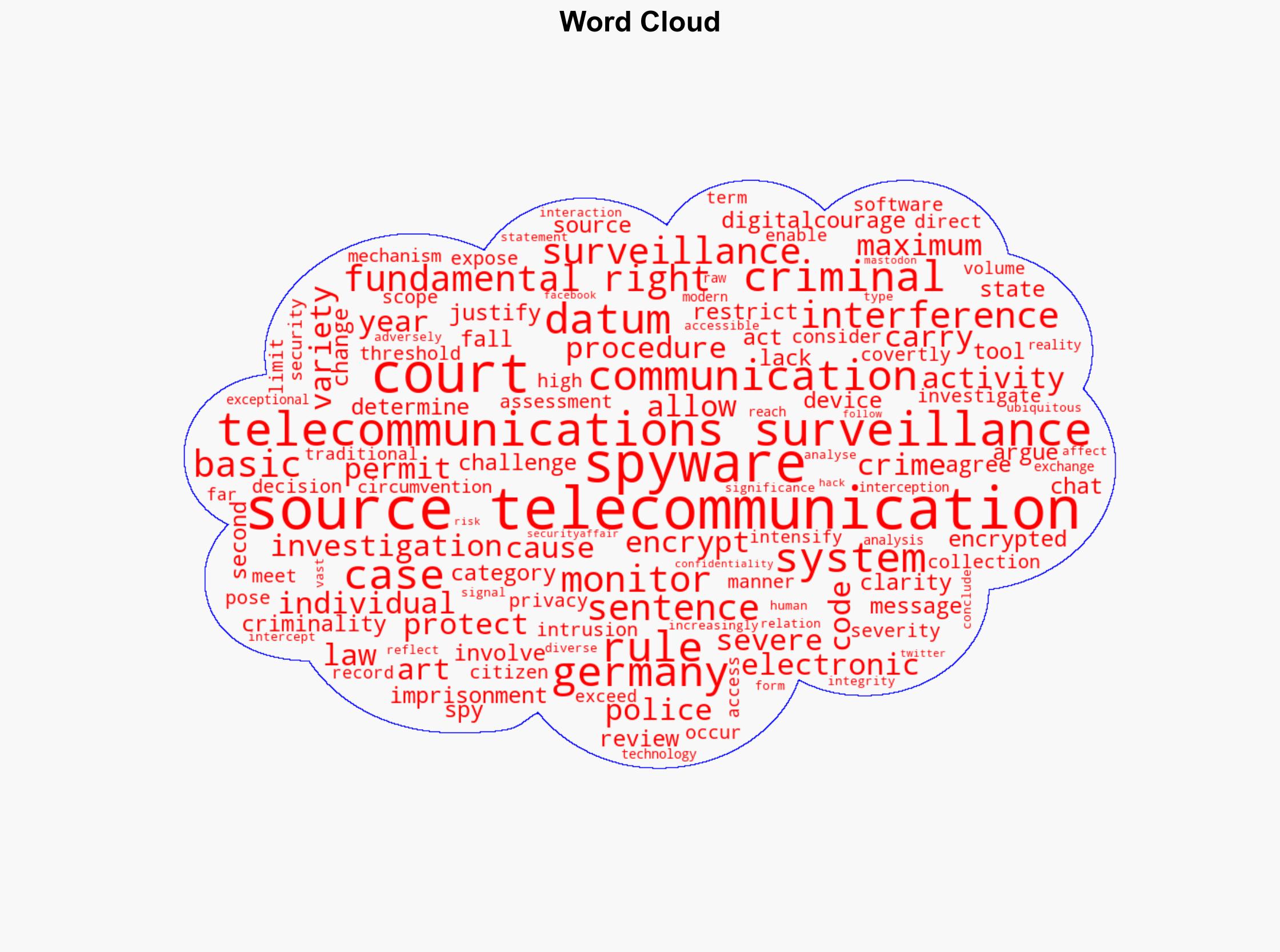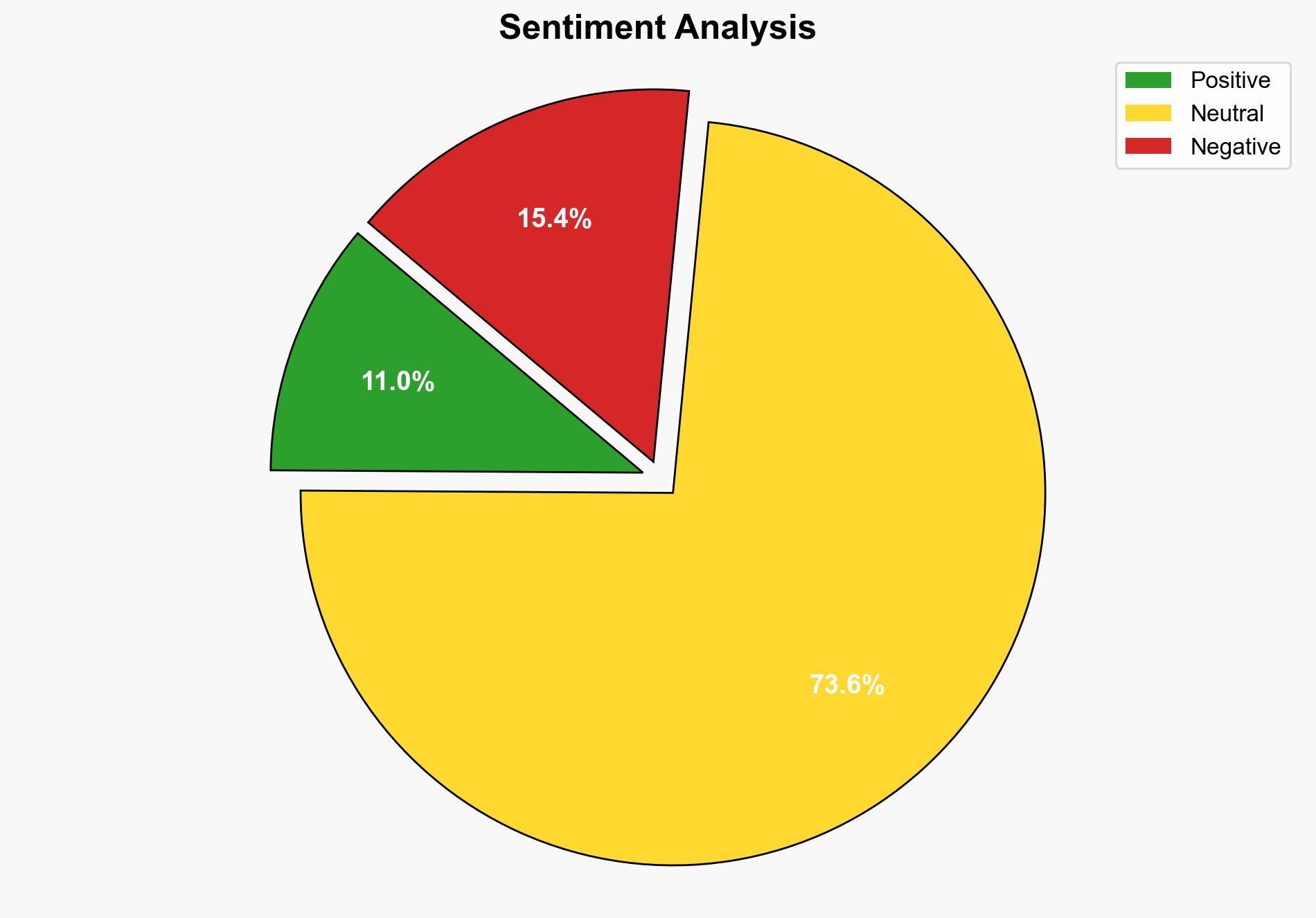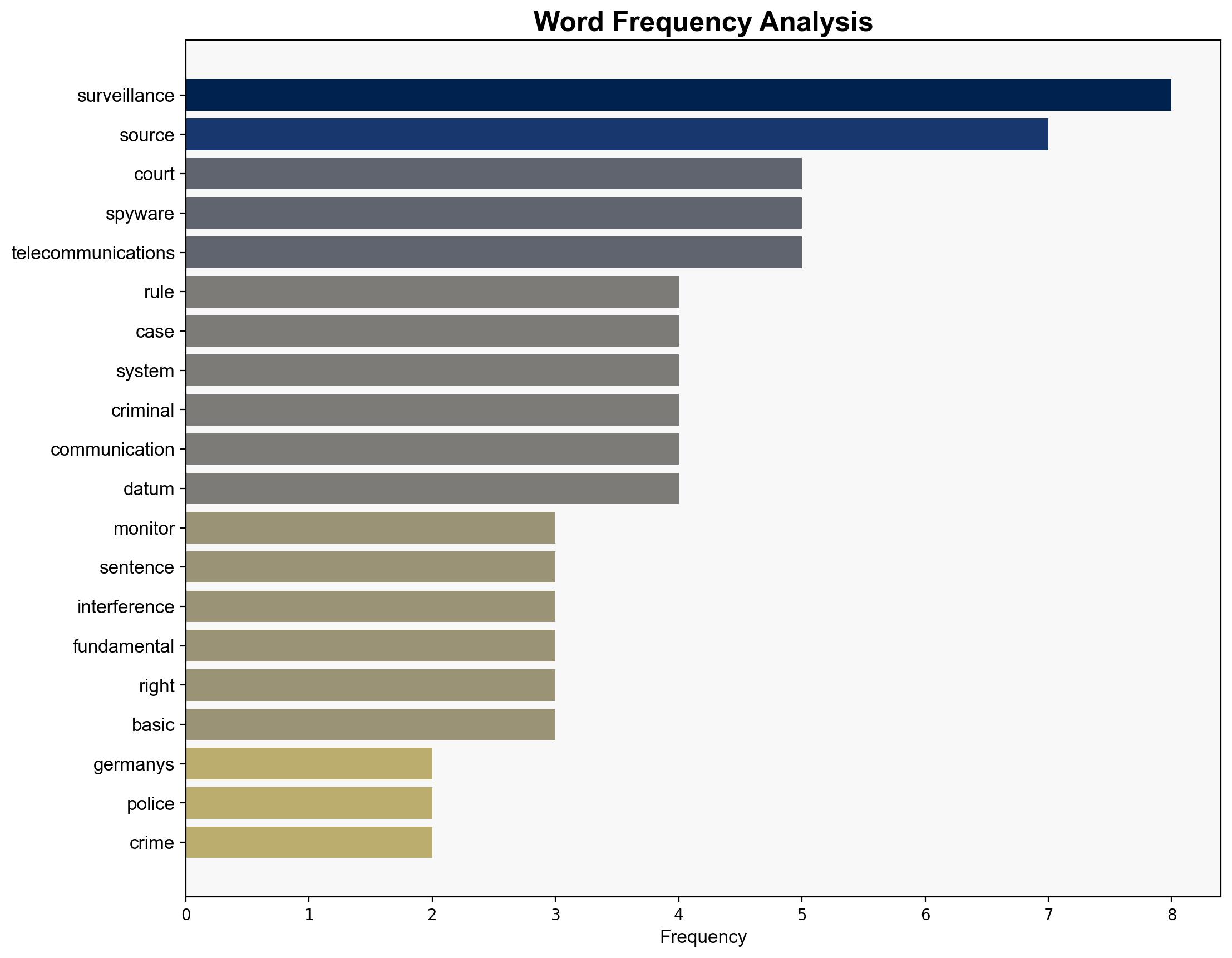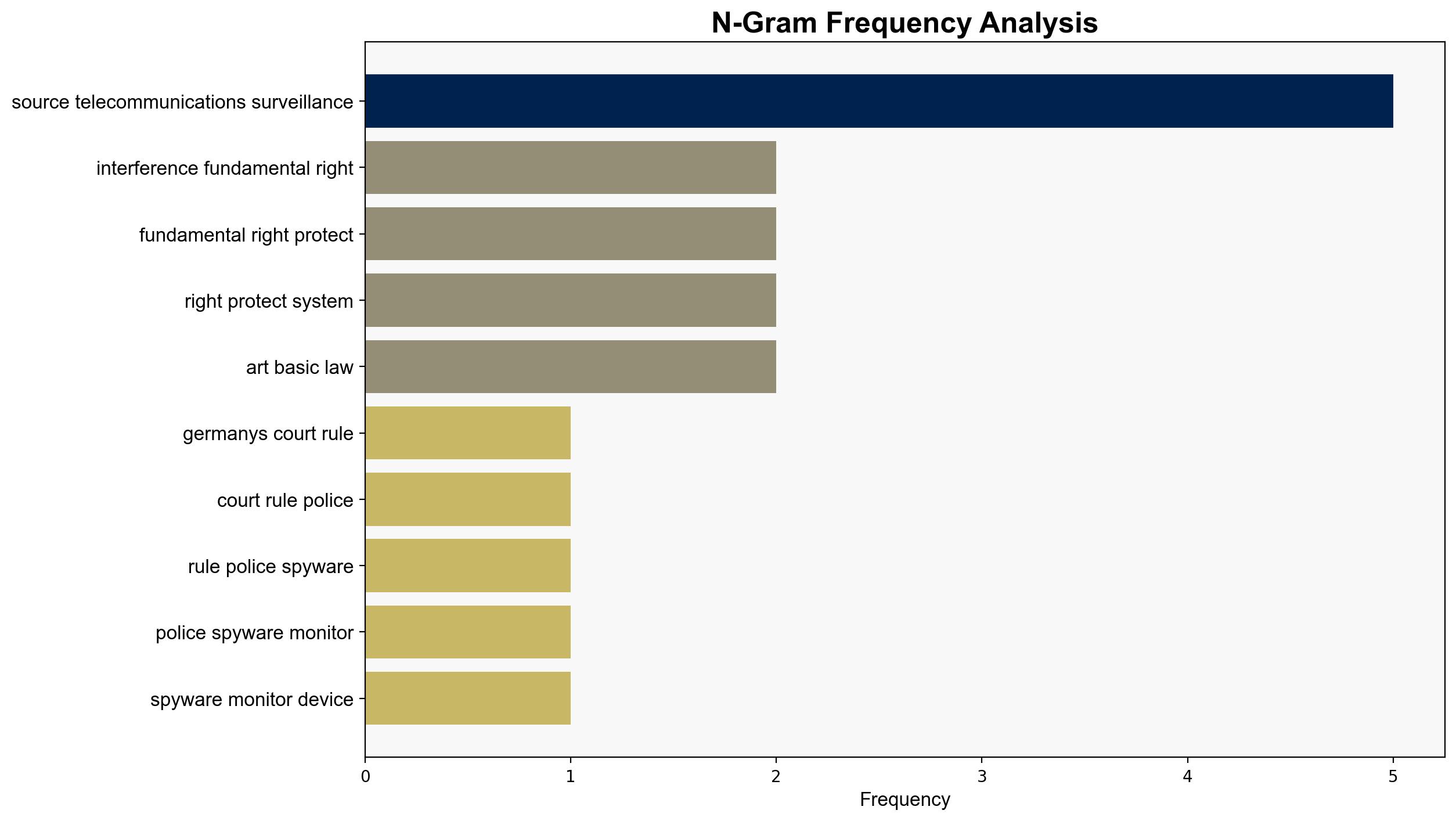Germany limits police spyware use to serious crimes – Securityaffairs.com
Published on: 2025-08-09
Intelligence Report: Germany limits police spyware use to serious crimes – Securityaffairs.com
1. BLUF (Bottom Line Up Front)
Germany’s decision to limit police spyware usage to serious crimes reflects a strategic shift towards balancing security needs with privacy rights. The most supported hypothesis suggests this move is primarily driven by legal and civil rights considerations. Confidence in this hypothesis is moderate due to potential underlying political motivations. Recommended action includes monitoring the implementation and impact of this policy change to assess its effectiveness and potential influence on international norms.
2. Competing Hypotheses
1. **Hypothesis A**: The limitation on police spyware use is primarily driven by legal and civil rights considerations, aiming to protect citizens’ privacy and uphold constitutional rights.
2. **Hypothesis B**: The decision is influenced by political motivations, possibly as a response to public pressure or to align with broader European Union privacy standards.
Using ACH 2.0, Hypothesis A is better supported due to the court’s emphasis on fundamental rights and the legal framework cited in the decision. However, Hypothesis B cannot be entirely dismissed given the potential for political influences in judicial decisions.
3. Key Assumptions and Red Flags
– **Assumptions**: It is assumed that the court’s decision is based purely on legal grounds without external influence. Another assumption is that the limitation will effectively protect privacy without compromising security.
– **Red Flags**: The lack of clarity on how “serious crimes” are defined could lead to inconsistent application. Potential cognitive bias includes overestimating the judiciary’s independence from political influence.
4. Implications and Strategic Risks
The decision could set a precedent for other countries, influencing global norms on privacy and surveillance. It may lead to increased scrutiny of surveillance practices, potentially impacting international collaborations in counter-terrorism. A failure to clearly define “serious crimes” could result in legal challenges and operational inefficiencies.
5. Recommendations and Outlook
- Monitor the policy’s implementation and gather data on its impact on crime rates and privacy protection.
- Engage with European partners to harmonize privacy and surveillance standards.
- Scenario Projections:
- Best Case: Enhanced privacy protection without compromising security.
- Worst Case: Increased crime due to reduced surveillance capabilities.
- Most Likely: Gradual adaptation with minor legal challenges.
6. Key Individuals and Entities
– Digitalcourage (plaintiff in the case)
– German judiciary
7. Thematic Tags
national security threats, cybersecurity, counter-terrorism, regional focus





